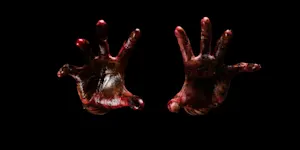What Makes This Word Tick
The word "pawky" certainly has an unusual ring to it. While it might not be part of everyday vocabulary today, it has a delightful meaning, especially for those who appreciate a sly sense of humor. Imagine someone with a twinkle in their eye and a perfectly timed witty remark—that's the essence of "pawky."
If Pawky Were a Person...
If "pawky" were a person, you'd find them at the local coffee shop, quietly observing the world with a mischievous grin. Always ready with a clever quip, they'd be the friend who lightens the mood with humor, even when things get tense—never loud, but oh so memorable.
How This Word Has Changed Over Time
"Pawky" has deep roots in the Scottish dialect, originating around the 16th century. Originally, it was used to describe someone who was cunning or sly, but over time it took on a more good-natured, albeit cheeky, connotation.
Old Sayings and Proverbs That Use Pawky
While there might not be a commonly known proverb that directly uses "pawky," Scottish literature is peppered with this word, often to describe those with a sharp but friendly sense of humor. It’s like calling someone a lovable rascal.
Surprising Facts About Pawky
One of the most charming aspects of "pawky" is its regional origins. It’s a word that carries with it the flavor of the Scottish countryside, where the understated yet biting humor is as appreciated as a good whisky and a tartan plaid.
Out and About With This Word
Use "pawky" when you're describing a movie character who wins hearts not just with looks or charm, but with a wickedly sharp wit. Think of those delightful side characters that make you smirk and steal scenes with their clever comebacks.
Pop Culture Moments Where Pawky Was Used
While "pawky" might not headline in Hollywood, it fits the bill for describing characters like Colin Firth's Mr. Darcy in "Pride and Prejudice"—cool, collected, with a subtle sharp humor that leaves an impression without ever raising his voice.
The Word in Literature
You'll spot "pawky" in works by great Scottish authors, embodying those slightly cheeky characters that add layers of humor to classic tales. It's a word ready to grace the pages of historical novels and cozy mysteries set in quaint European villages.
Moments in History with Pawky
Imagine the negotiations and treaties of old, where being "pawky" was a political asset. A cunning negotiator during the signing of the Magna Carta might have been described this way—not just clever, but charmingly so.
This Word Around the World
Though "pawky" is uniquely Scottish, its essence can be found in other cultures' expressions for wit and subtlety. In France, you might describe someone as having "un humour pince-sans-rire"—a dry, often sarcastic, but friendly humor.
Where Does It Come From?
Derived from the Scots language, "pawky" is an example of how regional dialects influence English. It harkens back to a time when communication was as much about wit as it was about words, embodying the spirit of clever banter.
How People Misuse This Word
Sometimes people might use "pawky" thinking it means merely clever or smart. However, it's the nuance of being slyly humorous, with a dash of cunning charm, that truly defines it. Remember—it's not just intelligence; it's the delivery that counts.
Words It’s Often Confused With
Witty: While both words involve cleverness, "pawky" carries an additional sly or cunning undertone.
Clever: Often used in broader contexts, clever lacks the specific humorous and mischievous quality of "pawky."
Sly: This can be more negative, implying deceit, whereas "pawky" suggests a playful cunning.
Additional Synonyms and Antonyms
Synonyms include cunning, shrewd, and wry. On the flip side, antonyms might be straightforward, dull, or artless.
Want to Try It Out in a Sentence?
"His pawky comments during the meeting had everyone chuckling discreetly, adding a light-hearted touch to the otherwise serious discussions."
















